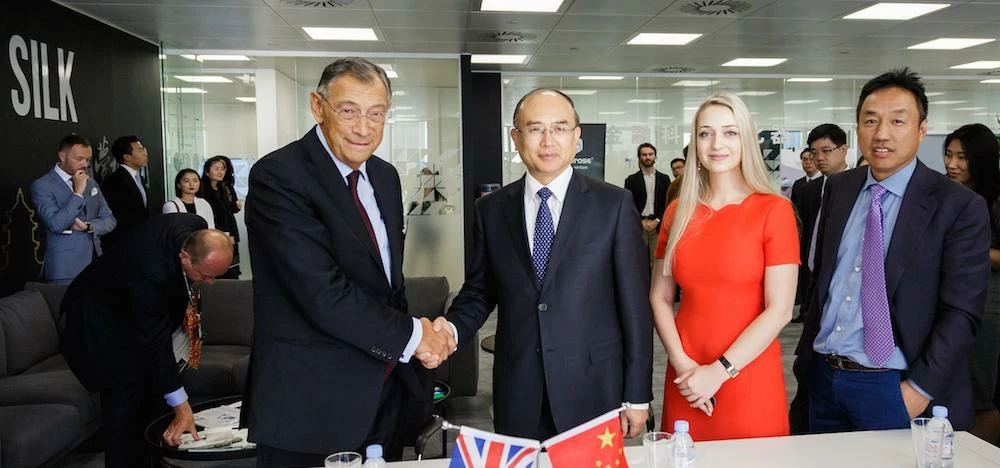Amid a rocky time for European tech, a sturdier but smaller unicorn herd emerged this year, as only Europe’s top companies managed to graze on enough healthy capital to navigate the VC downturn.
47 companies crossed the $1bn valuation threshold for the first time in 2022, versus 69 the previous year. The drop was inescapable as overall funding dropped around 23% year-on-year. Although that’s still over three times as many as were minted in 2020, the unicorn fall is symptomatic of bleaker conditions across most European tech ecosystems.
Sifted dived deep into the data for this year’s cohort of Europe’s mythical beasts.
👉 Check out our full, up-to-date tracker of all Europe's unicorns.
From north-south divide to convergence
Last year’s unicorn distribution across the continent unveiled some troubling trends around the ecosystem. Back then, 75% of unicorns were minted exclusively in the top three ecosystems — the UK, France and Germany — while a shy portion was spread around the Nordics and the Netherlands.
All other countries only saw a handful of $1bn+ companies, and despite peak levels of VC funding, others had simply never grown a horn.
This year’s cohort has shown some improvements in distribution, with countries like Italy minting its first unicorns, Croatia pulling a comeback and Spain piling up on its five-strong unicorn tally.
But on the downside, the unicorn share of Europe’s top three ecosystems plummeted some 20 percentage points, as top dogs were hit the hardest by shaky VC environments.
Although still out in front, the UK only produced 11 unicorns — 23% of this year’s herd, down from 55% last year. France and Germany managed 14 between them, in comparison to 29 in 2021.
The people behind the horns
Sifted tracked a total of 98 founders for 2022’s cohort.
Solo founders take up the largest share of them, including from the likes of Satispay, Paddle and Rimac Automobili, named after its Croatian founder Mate Rimac.
34% of new unicorns had two founders, 26% had three and only two had four. An average of two cofounders is generally consistent across unicorns of all ages.
Sifted analysis found that only 3.1% of all unicorn founders in the 2022 cohort were female — a 0.7 percentage point drop from 2021. Only three female founders reached the $1bn valuation mark — Relex Solutions’ Johanna Småros, TransferMate’s Sinead Fitzmaurice and Insider’s Hande Cilingir.
Previously a researcher at Helsinki University of Technology, Småros took up the role of CMO when the company was founded in 2005 — Relex is the oldest unicorn in this year’s list. This month, Småros, her cofounders and an early employee started a €100m charitable foundation to donate to groups fighting climate change and working to reduce inequality.
Fitzmaurice is Ireland’s first $1bn+ female founder, and has spent around 30 years in audit and finance.
Cilingir is cofounder and CEO of Istanbul-based marketing tool Insider, launched in 2012.
Fintech (yet again)
With 14 new unicorns this year, almost a third of the total, fintech comes out as the top sector yet again. Enterprise software comes second with six new unicorns, while security and energy are tied for third place with four new unicorns each.
This year also saw first-time unicorns in emerging subsectors like carbon capture (Switzerland’s Climeworks) and carbon accounting (France’s EcoVadis), showing climate tech companies continue to grow in size and impact.
Looking ahead to 2023
There has hardly ever been a tougher time for predictions, and this year’s cohort confirmed that while unicorns aren't dead, their stay is not granted.
Slashed valuations should come as no surprise for later stage and follow-up rounds, as expectations are recalibrated around new risks and rewards.
Some current unicorns could lose their status by heavy margins — just look to former unicorn Oda as a cautionary tale — but others will still rise up to the occasion as copious amounts of dry powder are still yet to be deployed on some high-level opportunities.
Some movement on the M&A side can also be expected along the lines of the recent Getir-Gorillas saga, and the prospects for European unicorns eyeing up IPOs remain bleak.
For a more in-depth data journey of 2022’s unicorns, check out our Pro Briefing here.
Federico Scolari is an intelligence analyst at Sifted. Amelie Bahr is a senior intelligence analyst at Sifted.
*Sifted defines a unicorn as a privately held, VC-backed company valued at $1bn. To be considered unicorns, startups must have: reached a $1bn valuation on any round previous to IPO or acquisition, been founded after 2005 and be founded and headquartered in Europe. Companies valued at $1bn at IPO but never at any prior financing stage are not considered unicorns as they are no longer privately held at that valuation


